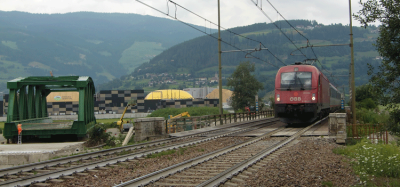Deal insight: overcoming competition hurdles in rail franchise awards
Posted: 31 January 2017 | | No comments yet
The UK’s Railways Act contains an obscure passage with deal-critical implications. If you enter a rail franchise agreement, you may need to first overcome competition law hurdles, the most immediate being: do you need clearance under merger control rules before you can proceed? This question stems from section 66(3) of the Railways Act 1993: by entering into a rail franchise agreement, a franchisee acquires control of a business, which could amount to a “relevant merger situation” in UK law, or a “concentration” in EU law. Which rules you follow (at least for as long as the UK remains in the EU) depends on the turnover of the bidder and the target franchise. If you are bidding for a rail franchise, how do you address this issue when responding to an Invitation To Tender (ITT)? Jeremy Robinson (Partner) and Vineet Budhiraja (Associate) at international law firm Watson Farley & Williams explore.


ITT – key points
The ‘Competition Matters’ section of an ITT broadly focuses on the following:
- Merger strategy of the bidder
- Reasoned analysis of the likely competition assessment of the transaction
- Indicative timetable for securing a competition clearance.
Merger strategy
Bidders are expected to confirm their merger strategy including whether a franchise award requires notification to the EC and, if so, whether they would submit a request for the transaction to be referred back to the CMA.
Moreover, bidders must propose how they would minimise delay. They must explain their approach to pre-notification discussions; confirm their willingness to offer undertakings to avoid a second phase investigation; and confirm that any such undertakings would not interfere with operating that franchise, or any of their existing transport interests.
Offering undertakings can be problematic, especially if they are open-ended3. For compliance reasons it might not be possible for a public limited company to do so, or the situation might be such that there is no risk of a second-phase investigation, thus making such a broad undertaking unnecessary. In such a scenario, if a bidder, for perfectly good reasons, does not offer a broad undertaking as required by the ITT, it might fail to meet the ITT’s requirements4 .
Competition assessment
Bidders are expected to provide the Department for Transport (DfT) with a competitive assessment of the transaction, such as whether the award of the franchise would negatively affect competition in the market. Bidders need to identify the overlaps between their existing transport interests (both rail and bus) and the franchise operations to do this. Bidders should provide an analysis of journey time, fares (including whether it has an ability to change fares), and competition with other modes of transport, such as air for instance.
The DfT considers whether the bidder’s approach is reasonable and consistent with the CMA’s past practice5. Where bidders identify competition problems, they must analyse how they propose to address these, and why they expect their suggestions to be successful.
The UK operates a voluntary merger regime; for instance, even if a transaction meets the jurisdictional thresholds, the parties can decide not to notify the transaction for lack of any competition issues. However, to meet the ITT requirements, bidders might be expected to make a fail-safe notification to, or engage informally with, the CMA, even where there are no competition issues.
Indicative timetable
ITTs also require bidders to provide details of the indicative timetable of obtaining a merger clearance to ensure that bidders (if awarded the franchise) would be able to commence operation without any delay.
The CMA encourages bidders to enter into pre-notification discussions with it soon after bid submission. The CMA will only conduct a formal investigation into the winning bid; pre-notification discussion with all bidders ensures that the investigation timetable begins the moment the winning bid is announced. Moreover, the CMA expects that the bidders should commence pre-notification discussions four to six weeks before the expected award date of the franchise6. Bidders also have to assess, where applicable, the impact of the possible notification to the EC and consequent referral back request under Article 4(4) of the EUMR, on the timetable.
Comment
It is imperative for rail franchise bidders to include merger control in their initial assessment of their bids to anticipate any potential competition problems and address them in a timely manner.
If the DfT thinks that awarding a franchise could invite CMA (or EC) intervention, to the extent that it prejudices that bidder’s ability to commence operation of the franchise as bid, it will at least mark down the bidder’s bid. At worst, the DfT may decide to disqualify the bid.
Bidders should ensure they address every requirement listed in ITTs even if, considering specific circumstances, a particular requirement may be irrelevant, or inappropriate – for instance, as aforementioned, the requirement to give extremely broad undertakings under the ITT for the Essex Thameside franchise.
References
- Section 66(3) states that: “For the purposes of Part 3 of the Enterprise Act 2002 (merger references), where a person enters into a franchise agreement as a franchisee, there shall be taken to be brought under his control an enterprise engaged in the supply of the railway services to which the agreement relates”
- Note that even where an award of a rail franchise in the UK would meet the EU merger thresholds, the bidder can submit a referral back request under Article 4(4) of the EU Merger Regulation (EUMR) for the transaction to be assessed by the CMA
- For instance, see page 22 of the ‘ITT for Essex Thameside’ (published in September 2013): www.gov.uk/government/uploads/system/uploads/attachment_data/file/ 245080/essex-thameside-itt.pdf
- By comparison, in the Northern Franchise ITT, this issue seems to have been addressed by including an option for the bidders to offer reasoning to support its conclusion that it would not be required to offer such undertakings
- The Office of Rail and Road (ORR) has powers to apply the prohibitions against anticompetitive agreements and abuse of a dominant position, including making certain market investigation references, concurrently with the CMA. However, the ORR’s concurrent powers do not extend to merger investigations in the UK
- See Page 1 of ‘Rail Franchises: Q&As’ (published by the CMA in March 2014): www.gov.uk/government/uploads/system/uploads/attachment_data/file/301707/Rail_ Franchises_Q_As.pdf
Biography


Jeremy Robinson specialises in EU and UK competition law. His work covers international merger control for mergers, acquisitions and joint ventures; distribution and licensing arrangements; restrictive agreements/abuse of dominance; competition compliance; State aid; sanctions; the economic regulation of industry sectors (rail, aviation, energy and utilities) and the legal implications of Brexit. Jeremy Robinson is Partner at Watson Farley & Williams.


Vineet Budhiraja advises on a broad range of competition law matters across a wide range of sectors (notably rail), including cartel investigations; market dominance issues; merger filings; State aid; review of distribution/service agreements and competition compliance. Vineet is an Associate at Watson Farley & Williams.







